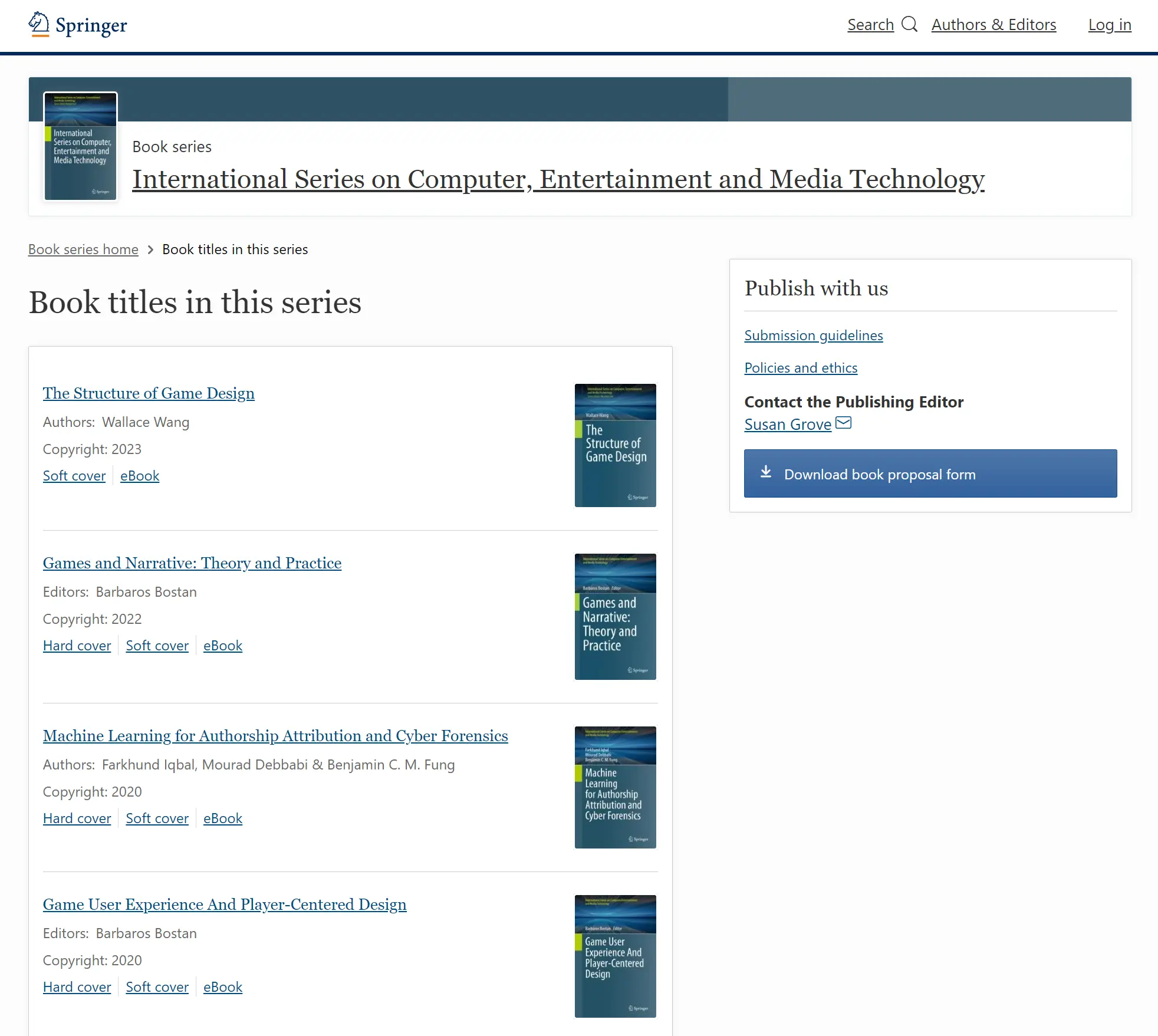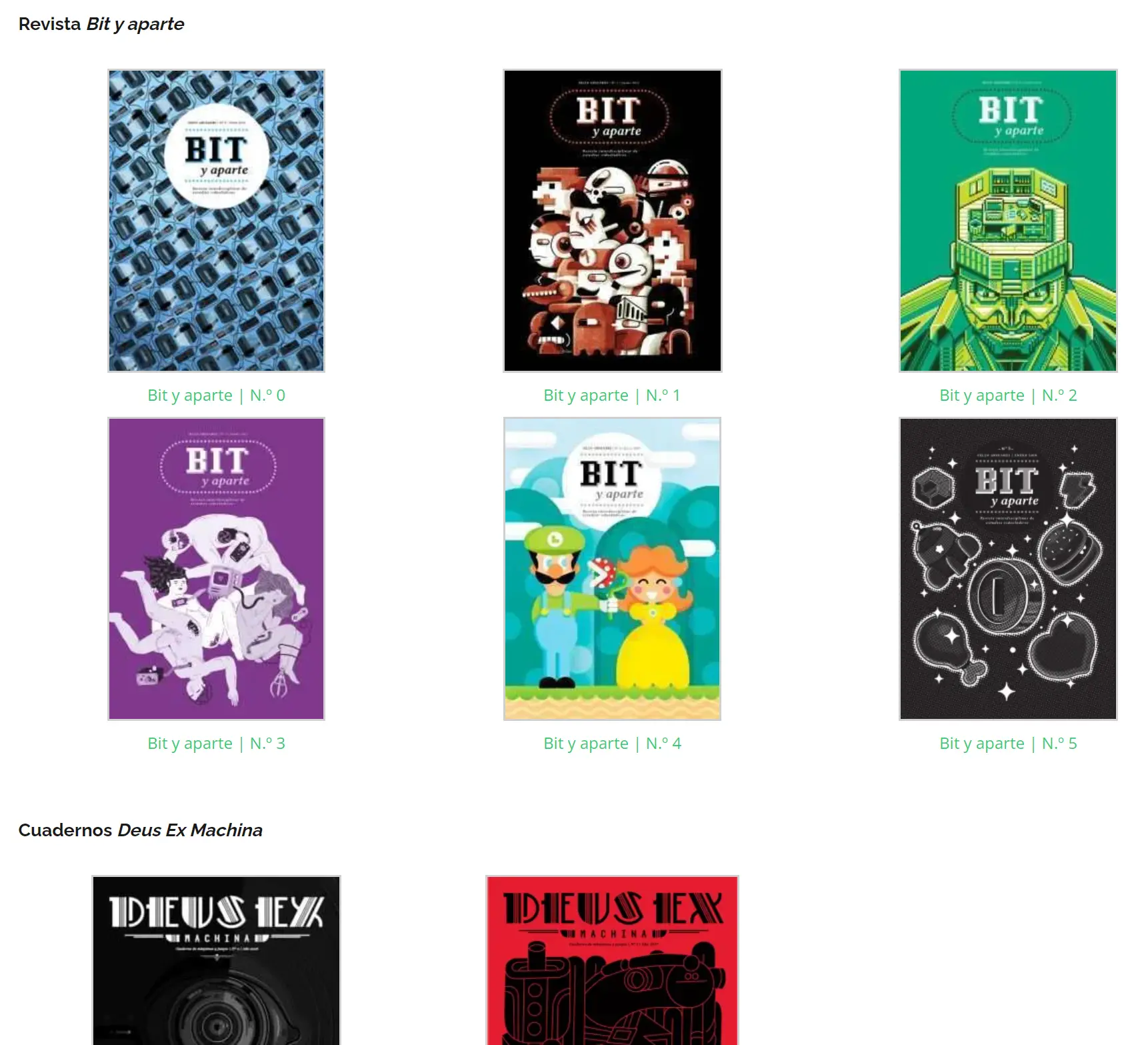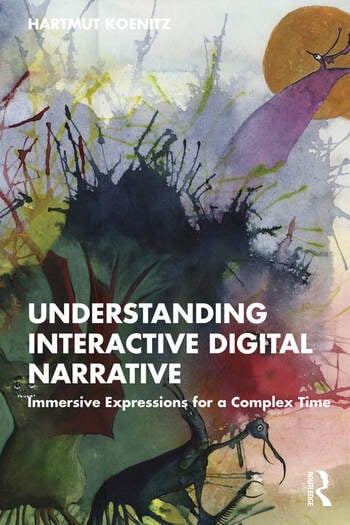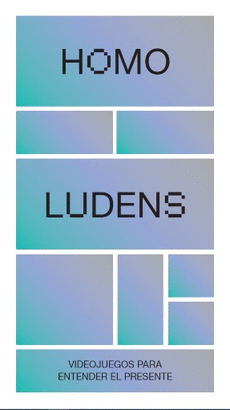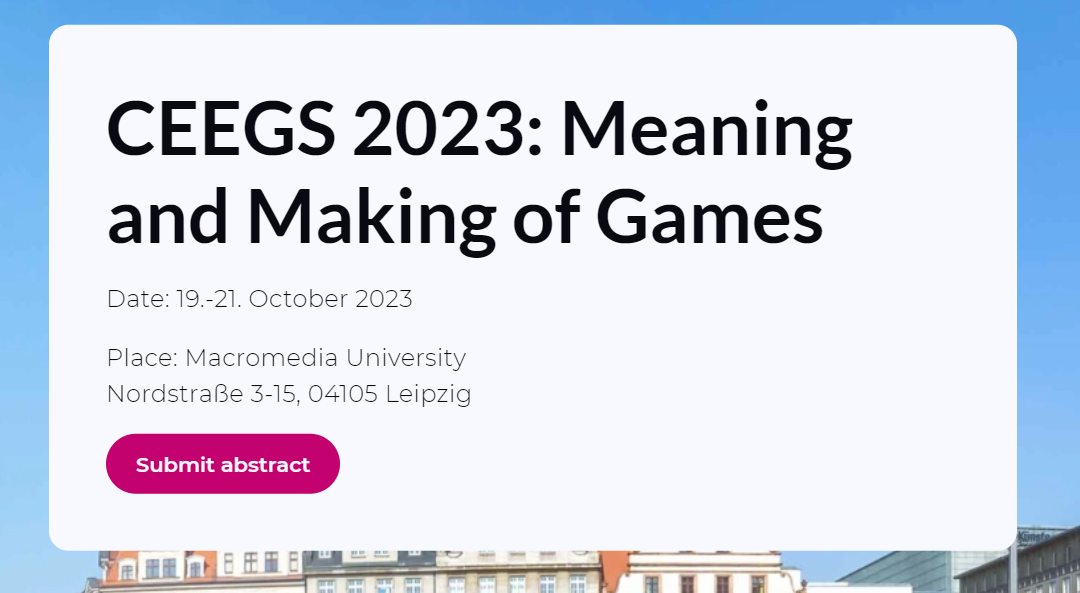
“CEEGS (Central and Eastern European Game Studies conference) is a gathering of game scholars organised annually by DiGRA Central and Eastern Europe, but its thematic scope is not limited to regional topics, and it welcomes participants from anywhere in the world. The 2023 conference will be hosted by Macromedia University in Leipzig, Germany.
temas:
Games as culture and forms of artistic expression
How games shape human discourse about society and contribute to new forms of game design and development; how they negotiate certain topics such as gender diversity, ecology, AI, human and nonhuman, politics, human philosophy.
Player experience
Game analytics and player behaviour, preferences, and the multifaceted effects of games and play.
World building and design
Cultural and ecological constructions and representations of gameworlds and the ways in which these worlds reflect and shape our understanding of reality; how gameworlds negotiate empirical reality, what elements (aesthetic, artistic traditions, etc.) they borrow, and how they re-arrange them in a coherent gameworld.
Character art and design
Artistic history and cultural expression in character design, diversity, stereotypes and breaking with them; representation of gender, monstrosity, etc., and the impact of these representations on players and society.
Narrative design
Recurring plot structures, master narratives; how ancient, literary, and transmedia plot structures influence the design of games, and how they shape our understanding of storytelling and ways of communication in the digital age.
Rules, mechanics, dynamics,
…and their relation.
Systems and ideological or utopian structures
Mechanics as metaphors; games as miniature-labs for systemic confrontations, learning from systems and cultural ramifications; if games can be seen as miniature laboratories that teach systematic thinking, which new ludic developments will influence our established systems? Which new systems will emerge and how may game design help?
Game production
Investigating the production processes involved in the creation of games, with a focus on the ethical, ecological, social, and political implications of these processes.
Gaming communities
Intercultural aspects, confrontations, groupings and forum discussions about games and culture and their interaction with game designers.
Playful communities and gamification practices
The homo ludens as a new labourer and the use of game design elements in non-gaming contexts.
AI and future technologies
How AI may inform and help game design; how AI may help in the creation of systems and meaning production; questions of authorship, etc.; the potential of virtual and augmented reality for game design and player experience.
Game accessibility and inclusivity
Examining how game design can be made more accessible to players with disabilities, and how games can promote diversity and inclusivity.
Aesthetics and design of experimental and independent games
Avant-garde experimentation in games and their theoretical input for game studies; serious games, health games, etc.; examining the impact of these games on players and society.
Game design research process
Game preproduction and research, and their influence on game design and AAA productions.”
+infos: LINK


